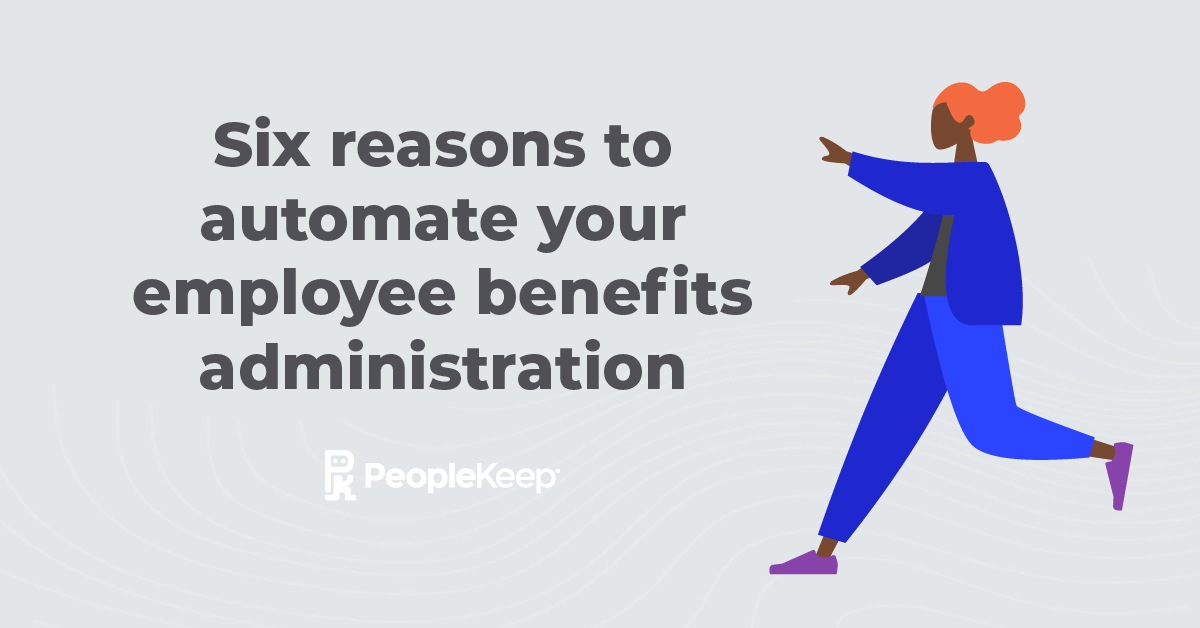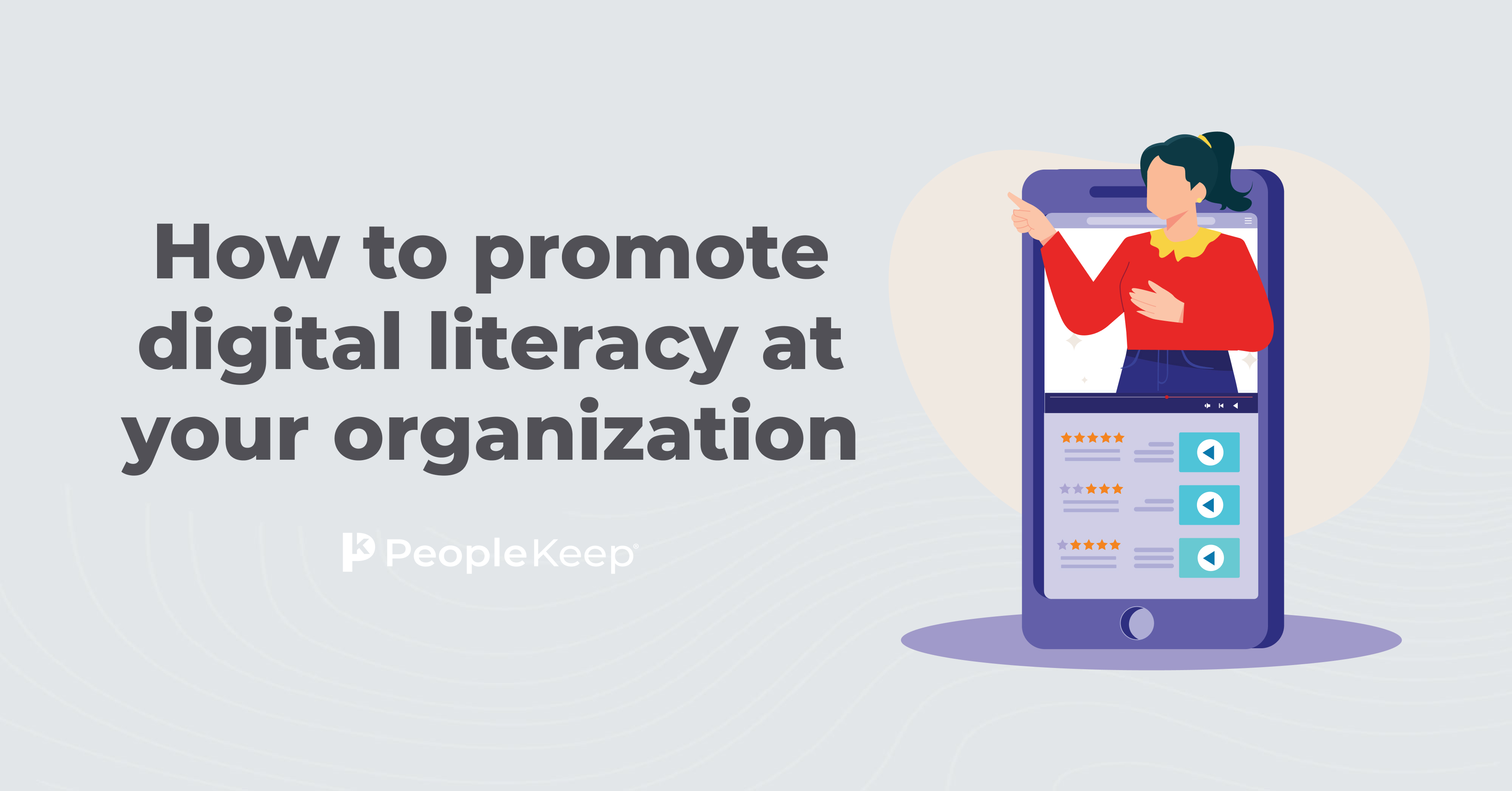What is human resource management (HRM)?
By Elizabeth Walker on June 20, 2024 at 12:14 PM
Employees are an employer's greatest asset. Organizations spend considerable time and effort recruiting and retaining the best employees to ensure their business flourishes. That’s why it’s essential to have the right systems and teams in place to manage your employees properly and keep them engaged.
Human resource management (HRM) involves overseeing various organizational tasks like employee recruiting, payroll, and compliance. An effective HR team can help your business grow to its fullest potential by identifying gaps and ensuring processes run smoother. But what else is involved with HRM?
In this post, we’ll explore what HRM is, why it’s important, and how small employers can use HR software to help them manage and scale their businesses.
Takeaways from this blog post:
- Human resource management (HRM) focuses on managing and supporting employees and helps organizations achieve their goals.
- HRM involves various tasks such as hiring and retention, workplace training, choosing employee benefits, communicating company policies, and ensuring compliance with state and federal regulations.
- Small employers without comprehensive resources and a limited HR staff can use HR software to streamline processes and business operations.
What is human resource management (HRM)?
Human resource management (HRM) is the practice of supporting and managing employees. It’s also focused on creating organizational policies that carry out a business’s goals, mission, and values to achieve better company performance and growth.
HRM’s primary goal is to help an organization reach its full potential by ensuring employees are trained, engaged, and productive. HRM also aims to maintain company culture. HRM carries out various tasks that support the workforce, including recruitment, employee retention, compensation and benefits, training sessions, professional career development, and more.
Because HRM can make or break an organization’s success, companies of all sizes need to focus on it—regardless of industry.
A few other human resource management objectives may be:
- Ensuring the company and its employees follow federal and state compliance regulations.
- Providing recruitment, hiring processes, onboarding, training programs, and employee engagement to support retention and productivity.
- Offering continuing education options and employee development programs.
- Creating a positive employee experience and an inclusive workplace to maintain job satisfaction.
- Drafting and communicating rules and policies to employees, including diversity, equity, and inclusion initiatives (DE&I) to create a safe work environment.
- Selecting employee benefits, overseeing fair compensation budgets, and administering payroll.
- Ensuring employee safety while they’re on workplace premises.
- Reducing company risk and maximizing return on investment (ROI).
While HRM is a strategic approach to managing company employees and policies, HR usually refers to the team or department that oversees the individual key functions of HRM. Most companies have an HR team—even if it’s just one or two employees—to enforce procedures and support their workers. The size of your HR team can vary based on need, budget, and business size.
Why is human resource management important?
HRM allows organizations to grow and become successful by adequately managing and supporting their greatest strength: their current employees.
Investing in your workers and caring about their needs can improve satisfaction, boost morale, and increase employee productivity. Employees who feel valued by their employers will be motivated to help reach company goals. In turn, they’re more likely to stay at your company for the long run.
The following are more reasons why HRM professionals are essential:
- Company managers can work with them to learn effective ways of communicating with their individual employees safely and respectfully.
- They can communicate company strategies and policies to employees and help them better understand the business goals.
- They support a positive company culture with strategic planning of engagement events to improve morale and reduce employee burnout.
- They offer supervisors and employees the tools they need to navigate workplace conflict or difficult conversations with teammates successfully.
- They monitor the job market to ensure the organization offers competitive and attractive employee compensation and benefits.
A thriving company respects its workers and gives them the tools they need to excel. Using HRM to manage and support your staff ensures that your business growth and profits don’t come at the expense of employee satisfaction or morale.
What are common job positions within human resources?
Because HRM can significantly transform an organization, HR job positions are highly sought after. The Bureau of Labor Statistics expects the employment of HR managers to grow 5% between 2022 and 20321. The average annual salary for HR managers in 2023 was $136,350.
Depending on your company’s size and needs, your HR department may have one or many employees who perform a variety of active roles. For example, small businesses may have one employee who handles all the organization's HR needs, while larger companies may have many employees who each handle specific responsibilities.
There are many key roles. Therefore, you can structure your HR team in a way that best supports your business strategy.
A few examples of careers in HR include:
- HR assistants, coordinators, and managers
- Recruiting coordinators and managers
- Immigration verification specialists
- Employee compensation specialists
- Benefits specialists
- HR technology managers
- HR analytics specialists
- Employee relations managers, also known as labor relations managers
- Payroll specialists
- Talent management specialist
- Employee training coordinators and managers
- HR information system specialists
What are the skills and qualifications needed to work in HR?
Before an individual can work in HR, they must have a broad range of skills and qualifications to succeed.
The following are a few job-relevant skills that applicants typically need to work in HR:
- Strong verbal and written capabilities to effectively write job descriptions, hold interviews with candidates, draft company policies, negotiate job offers, and more.
- Active listening and leadership skills for resolving employee concerns and conflicts and improving satisfaction.
- A solid understanding of state and federal employment laws and regulations.
- A high level of strategic thinking to drive job performance and meet organizational goals.
- Strong data analysis capabilities to organize and examine relevant metrics and provide insight for business leaders for improvement.
- Interpersonal skills and flexible attitude with the ability to excel in an ever-changing environment.
- A deep understanding of confidentiality regulations with an emphasis on ethical guidelines.
Individuals will typically need to secure a bachelor's degree or master’s degree in HRM or a related field, such as business administration, before pursuing a career path in HR. Those without a relevant bachelor’s can receive an associate degree in HR to gain job-relevant skills and qualifications. Individuals can also earn professional certifications to increase their knowledge and boost their resume.
How can small employers leverage human resources software to improve their business operations?
HRM is essential for all organizations. However, small business owners with limited budgets and resources can find employing a large HR team challenging.
To run a successful business, small employers must be able to use HRM tools to attract and retain employees, be in compliance with regulations, create organizational policies, improve the employee life cycle, and grow their business. That’s where HRM software can help.
HR software is for businesses of all sizes and helps employers standardize their HR processes. With this software, you can automate manual and repetitive day-to-day tasks. This saves you valuable time that would be better spent running your company. For small businesses with few HR team members, this software can help them manage daily administrative functions and employee records in one central database to reduce potential mistakes.
Almost all modern HRM software integrates with other business programs you may use, like ones for payroll, attendance tracking, compliance, benefits, employee engagement, and more. In many cases, it allows each organization to customize it according to their specific needs and goals, making it a flexible option for small businesses.
“Small businesses are popularly known to have a different reality regarding HR, as resources, budgets, and staff are often very limited,” Ben Johnson, CEO of Big Ben, said. “Yet, between cloud-based HR software, automated onboarding platforms, and outsourced payroll and benefits administration services, the tools surely exist to help small businesses ensure they can operate just like their larger cousins: with professionalism and efficiency.”
Conclusion
HR has evolved since its inception in the early 1900s. It’s no longer a department that only deals with onboarding and offboarding employees. These days, HR management plays a vital role in applying your organization’s goals, policies, and values. What’s more, effectively managing your employees and ensuring they have a positive work experience throughout their tenure at your company is critical to your future success and growth. And with the right HR software solutions, even small businesses can meet their HR goals without blowing their budget.
1. https://www.bls.gov/ooh/management/human-resources-managers.htm
Check out more resources
See these related articles

Six reasons to automate your employee benefits administration
Managing benefits manually? Learn six reasons why automated benefits administration saves time, reduces errors, and boosts compliance.

How to promote digital literacy at your organization
This blog explains what digital literacy is, why it’s important, and how you can foster it in your organization.

Keeping an open line of communication with your employees
Here are eight tips employers and human resources managers can leverage to ensure an open and honest line of communication with their employees.



